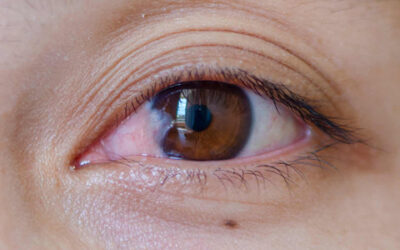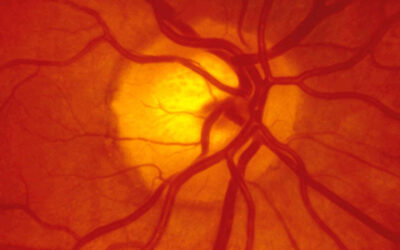Diabetic Retinopathy: Symptoms and Causes
Diabetes is the condition whereby the body cannot process sugar and starches, and treatment may include diet and possibly medications.
The effects of untreated diabetes can lead to a range of complications across your body systems, including your skin, nerves, kidneys and heart, and the eyes are no exception. Diabetic retinopathy, or damage to the retina due to diabetes, is one of the leading causes of preventable vision loss worldwide, and up to one-third of all individuals with diabetes will experience it at some point*.
In the early stages, diabetic retinopathy often has no noticeable symptoms. Our eye care professionals recommend that everyone with diabetes have a comprehensive eye examination at least once a year, as early detection and treatment can make a significant difference in protecting your vision.
What Is Diabetic Retinopathy?
The negative impacts that the blood sugar and circulation changes in diabetes can have on the eyes include:
- Damaging and weakening the tiny blood vessels located within the retina, causing them to create tiny bulges called microaneurysms. These can leak blood and other fluids into the retina over time, causing it to swell with increased pressure and making vision cloudy and blurry.
- Causing fluid to accumulate in the lens, changing its curvature and making it difficult for the lens to change shape and focus light correctly, creating difficulty in seeing objects clearly at different distances.
At more advanced stages of diabetic retinopathy:
- Circulation problems can result in blockages in small blood vessels that starve the retina of oxygen, causing parts of the retina to become damaged and develop scar tissue.
- As a result, new, fragile blood vessels can begin to grow in the retina and into the vitreous. These new blood vessels may leak blood into the vitreous, which can further cloud vision and, in some cases, may block vision entirely.
- Due to the formation of scar tissue and the development of glaucoma, an eye disease that damages the optic nerve, the retina can become detached, causing significant vision loss.
- New blood vessels may also begin to grow into the eye area responsible for draining fluids from the eye, greatly increasing the pressure within the eye and damaging the optic nerve.
If left untreated, diabetic retinopathy can advance and lead to severe vision loss and blindness. However, the good news is that vision loss from diabetic retinopathy is often preventable.
Detecting changes in the early stages, through a comprehensive eye examination, can enable you to put in strategies to prevent the complications that diabetes can have on your eyes before they happen and protect your vision over time.
Symptoms Of Diabetic Retinopathy
Although it usually affects both eyes, most people with diabetic retinopathy have no symptoms during the early stages of the condition, as noticeable signs don’t usually appear until major eye damage has already occurred. For people with diabetes, managing blood sugar levels and having regular comprehensive exams with a trusted eye care professional to monitor your eye health over time is essential.
At more advanced stages, the symptoms of diabetic retinopathy may include:
- Seeing spots of floaters
- Blurred vision
- Seeing an empty or dark spot at the centre of your vision
- Difficulty seeing at night
- Trouble distinguishing colours
- Loss of vision
If you have diabetes and notice changes in your vision, such as seeing floaters, it’s important to seek treatment promptly from an experienced eye care professional, as treatment is critical to prevent more serious vision loss from occurring in the future.
What Causes Diabetic Retinopathy?
The most recognised cause of diabetic retinopathy is type 1 or 2 diabetes, and the longer a person has had the disease, the more likely to develop diabetic retinopathy – especially if the diabetes isn’t controlled or managed well.
Other risk factors that can make a person more susceptible to developing the condition include:
- Age: People 55 or older are more likely to develop diabetic retinopathy*.
- Obesity: Obesity, or having a BMI of 30 or over, can put you at greater risk*.
- Gender: Males have higher rates of diabetic retinopathy than females*.
- Medical conditions: High blood pressure and high cholesterol can also increase your risk of diabetic retinopathy*.
- Pregnancy: Women who develop gestational diabetes during pregnancy have an increased risk of developing diabetic retinopathy*.If you have preexisting diabetes and become pregnant or develop gestational diabetes, we recommend having a comprehensive eye exam to check for signs of retinopathy, which can worsen rapidly with the vascular and pressure changes during pregnancy.
- Family History: Research has found that diabetic retinopathy is an inherited disorder with a genetic component, meaning that if family members have had the condition, you’re more likely to develop it too*.
Detect Diabetic Retinopathy Early With A Comprehensive Eye Exam At The Optical Co
Diabetic retinopathy can be detected in its early stages before any noticeable symptoms, through a comprehensive eye examination with a qualified eye care professional, which may include:
- Discussing your life, family and medical history to identify risk factors, vision difficulties, diabetes, and other health concerns that may affect your eye health.
- Visual acuity measurements to assess how much your vision has been affected.
- Refraction examinations to check if new glasses or lens prescription is needed.
- Specialised assessments of the ocular structures, including a dilated pupil test to observe the retina’s health.
- Measurement of the pressure within the eye.
- Retinal photography or tomography to gather data and imaging on the health status of the retina.
After your exam, your optometrist will be able to discuss your diagnosis and treatment plan options with you to protect your eye health, best correct your eyesight.
At The Optical Co, our friendly optometrists offer targeted care for various conditions. Every treatment plan is designed uniquely for your needs and preferences to help optimise your quality of life. Our optometrist will also be able to refer you to an ophthalmologist, or eye doctor specialising in your condition, for more complex treatment, if needed.
Don’t delay treatment; get your eyes checked today. To book your comprehensive eye exam with one of our experienced team members, contact one of your local clinics.




